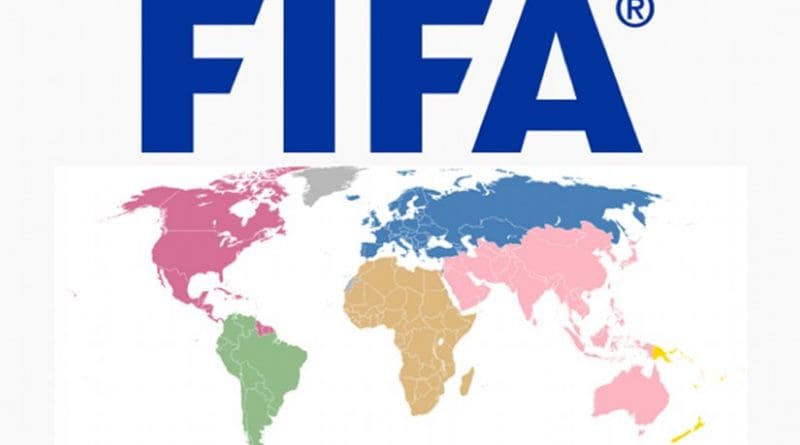French Women Groups Protest FIFA Decision To Endorse Hijab – Analysis
Three French women’s organizations have expressed concern and disappointment with world soccer body FIFA’s endorsement of a proposal to lift the ban on women players wearing a hijab, an Islamic hair dress, on the pitch.
“To accept a special dress code for women athletes not only introduces discrimination among athletes but is contrary to the rules governing sport movement, setting a same dress code for all athletes without regard to origin or belief,” the three organizations said in an open letter to FIFA president Sepp Blatter.
Anne Sugier, president of the League of International Women’s Rights (LDIF) founded by Simone de Beauvoire, said in an email that she had sent the letter together with the heads of FEMIX’SPORTS and the French Coordination for the European Women’s Lobby, following publication on December 19 of the FIFA executive committee decision in The Turbulent World of Middle East Soccer.
FIFA endorsed at its December 16-17 executive committee meeting in Tokyo the proposal to lift a controversial ban on women wearing a hijab in a move that brings closer a resolution to demands by religious female Islamic soccer players that they be allowed to wear a headdress in line with their interpretation of their faith.
FIFA said it would submit the proposal put forward by Asian Football Confederation (AFC) vice president Prince Ali Bin Al Hussein, a half-brother of Jordanian King Abdullah, to the International Football Association Board (IFAB), which governs the rules of association soccer.
IFAB is expected to discuss the proposal that calls for the sanctioning of a safe, velcro-opening headscarf for players and officials at its next scheduled meeting on March 3. England alongside FIFA, Wales, Scotland and Northern Ireland form the secretive IFAB.
The FIFA endorsement follows an earlier approval of the AFC proposal that resulted from a workshop convened in October in Amman by Prince Ali that was attended by prominent soccer executives, women players and coaches, including head of FIFA’s medical committee Michel D’Hooghe, AFC vice president Moya Dodd, members of FIFA’s women committee and representatives of the soccer bodies of Jordan, Bahrain, Iran and England.
The dispute over observant Muslim women player’s headdress led in June to the disqualification of the Iranian women’s national team after they appeared on the pitch in the Jordanian capital Amman for a 2012 London Olympics qualifier against Jordan wearing the hijab. Three Jordanian players who wear the hijab were also barred.
The three women’s organizations said FIFA’s acquiesce in the AFC’s assertion that the hijab, a headdress that complies with Islamic law that obliges women to cover their hair, ears and neck, as a “cultural rather than a religious symbol” and therefore did not violate IFAB rules was unacceptable.
The letter suggests that FIFA and AFC efforts to reach a compromise between world soccer rules and Islamic law followed by conservative female Muslim players was, likely to meet resistance from non-Muslim women’s and feminist groups. It is a battle between value systems in which conservative female Muslim players demand a right and non-Muslim women activists seek to impose what they see as a universal value.
Ironically, the two opposing groups may find common ground when it comes to Iran, which welcomed world soccer’s efforts to seek a compromise, but is likely to remain in the firing line because of its imposition of the hijab on its players rather than allowing it to be an individual voluntary decision. Iran is further likely to run afoul of world soccer because of its insistence that visiting foreign women soccer teams dress in accordance with the Islamic republic’s interpretation of Islamic law.
The three women’s organizations charged that the FIFA decision constituted an effort to kowtow to the most conservative Islamic states, presumably a reference to Iran and Saudi Arabia, which effectively bans women’s sports.
“To pretend that hijab is a cultural and not a religious symbol is not only preposterous, but untrue… You neither can put aside the fact that the conflict that has opposed FIFA to the Iranian regime is linked to Tehran’s will to impose its own religious law to women’s sport,” the organizations said in their letter.
They charged that Iran rather than seeing the hijab as a cultural symbol was seeking “to impose a political religious outfit for women, that covers entirely their body… Sport must stay clear of political and religious interfering. Its aim also is to eliminate all forms of discrimination. FIFA ruling is about to abandon this noble aim and FIFA will be accountable for that,” the organizations said.

